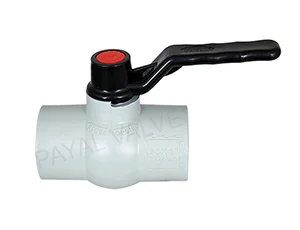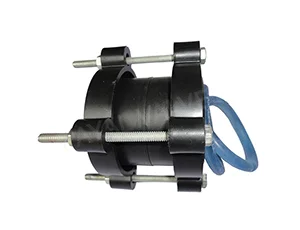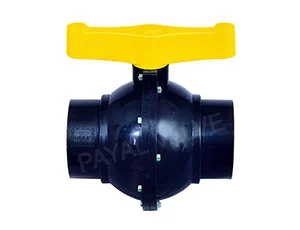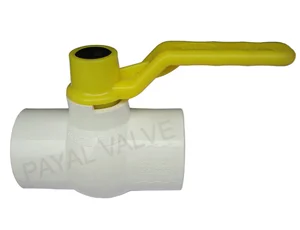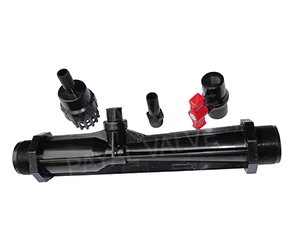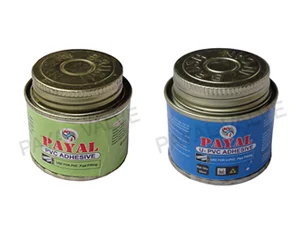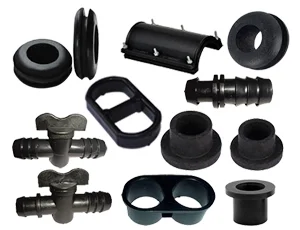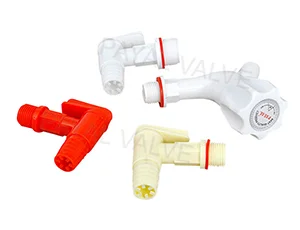
By admin / 08 Oct 2025
Agriculture is the backbone of the global economy, and efficient irrigation systems play a vital role in increasing crop yield and conserving water. Among the various components used in irrigation, ball valves have emerged as one of the most reliable and efficient solutions for controlling water flow.
A ball valve is a type of flow-control device that uses a spherical ball with a hole through its center. By rotating the ball, the valve can start, stop, or regulate the flow of water. In agriculture, ball valves are widely used in irrigation pipelines, drip systems, and sprinkler setups due to their ease of use, durability, and high performance.
Unlike traditional gate or globe valves, ball valves provide a tight seal, making them ideal for managing water distribution in fields where precision is key.
Water is one of the most critical resources in farming. However, with increasing water scarcity and climate change, it is crucial to use irrigation water wisely. Farmers need systems that:
Ball valves play an essential role in meeting these requirements, helping farmers optimize their irrigation practices and ensure healthy crop growth.
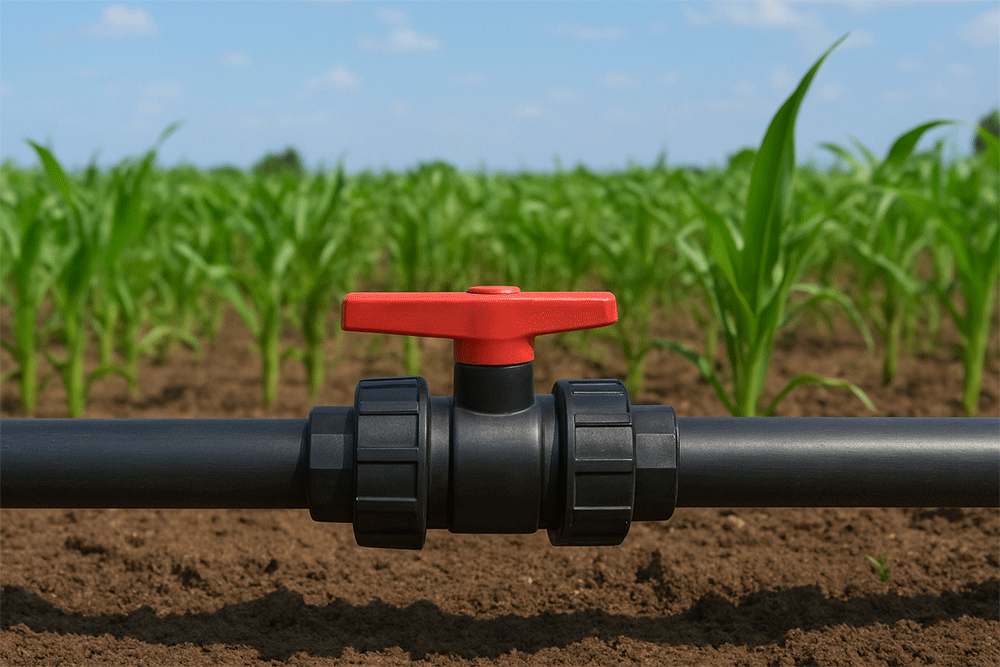
Ball valves provide excellent control over the flow of water. With a simple quarter-turn mechanism, farmers can quickly start, stop, or adjust water flow. This precision ensures that crops receive the right amount of water, avoiding both over-irrigation and water stress.
Farmers often work in challenging environments, and complex equipment can slow them down. Ball valves are known for their user-friendly design. They can be operated manually without requiring special tools or technical expertise.
Agricultural equipment must withstand harsh conditions such as prolonged exposure to water, chemicals, and sunlight. Ball valves, especially those made from high-quality PVC, HDPE, or brass, are resistant to:
One of the significant advantages of ball valves is their affordability compared to other types of valves. Moreover, their long service life and minimal maintenance reduce replacement and repair costs, further increasing savings for farmers.
For large-scale irrigation systems, this translates to lower operational costs and higher profits.
Water leakage in irrigation systems can lead to significant losses over time. Ball valves are designed to provide a tight seal, preventing leaks even under high pressure.
This feature ensures efficient water usage, which is crucial in areas facing water scarcity and helps in achieving sustainable farming practices.
